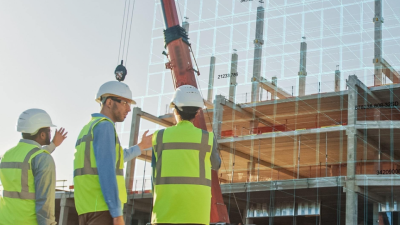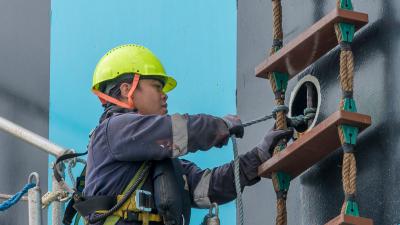
New technologies to improve health and safety performance
Discovering Safety joins forces with Safetytech Accelerator to build a Smarter Regulation Sandbox.
This page is approximately a 3 minute read
This page was published on

Since the grant was awarded in 2018, SEASEP has trained over 4,500 students in Indonesia
Large-scale datasets, such as Lloyd’s Register Foundation’s World Risk Poll, indicate that there is an increasing occupational health and safety gap between developing economies and the developed world. Southeast Asia is a prime example of this, with some countries in the region having between ten and twenty times more annual workplace fatalities than their European counterparts.
Source: https://www.arinite.co.uk/the-worlds-most-dangerous-countries-for-workers
Population growth and huge global investment into Southeast Asian infrastructure means more lives could be lost at work unless there is swift action taken to ensure changes in safety culture across the region.
In response, the Southeast Asia Skills Enhancement Programme (SEASEP) was created by Lloyd’s Register Foundation and The Welding Institute (TWI) to improve safety standards by building capacity in the workforce through enhanced engineering skills and education. TWI’s credibility as a recognised certification body and long-standing presence in the continent made them the ideal partner for the Foundation to deliver training and ensure buildings are constructed and maintained to an internationally acceptable standard.
Since the grant was awarded in 2018, SEASEP has trained over 4,500 students in Indonesia, Thailand, India and the Philippines. The programme has focused on supporting disadvantaged and underrepresented groups, and includes a 100% bursary for women engineers.
The welding sector is very, very challenging for women. Few women choose this as a career, because welding inspectors are almost all men. But welding is a vital skill if we’re going to improve our safety record… I’m living proof that female engineers can now achieve whatever they want to achieve.
Now six months into its second phase, the programme has ambitions to train a further 6,000 engineers (taking the total number of Foundation-funded students to over 10,000) and accelerate the transition of graduates into safety critical industries such as construction and maritime.
Stephen Wisniewski, Project Manager for the SEASEP programme, said: “Despite complications arising from the Covid-19 pandemic, the programme has been very successful to date. Funding from Lloyd’s Register Foundation has certainly helped to change the lives of many students in the territories where the training is taking place.”
“Phase two of the programme will build on lessons learned from the first four years and work with industry, government ministries and educational establishments to upskill SEASEP graduates, provide career development opportunities and ultimately reduce the number of occupational fatalities in a region where they have had such a profoundly negative impact.”
It is absolutely fundamental to our strategy as a global safety charity that we identify where in the world preventable accidents are happening, and fund interventions that are effective in making people and our built environments safer. SEASEP is a prime example of this strategy in practice, and we’re extremely proud to be continuing our commitment to TWI and the next generation of Southeast Asian engineers.
For more information on SEASEP, visit their website. To explore more of the Foundation’s funding activity in Southeast Asia, visit our grants data.
Image credits: Sam Barker, 2022 (https://www.sambarkerphoto.com/) / Lloyd’s Register Foundation, 2022 (https://www.lrfoundation.org.uk/ )